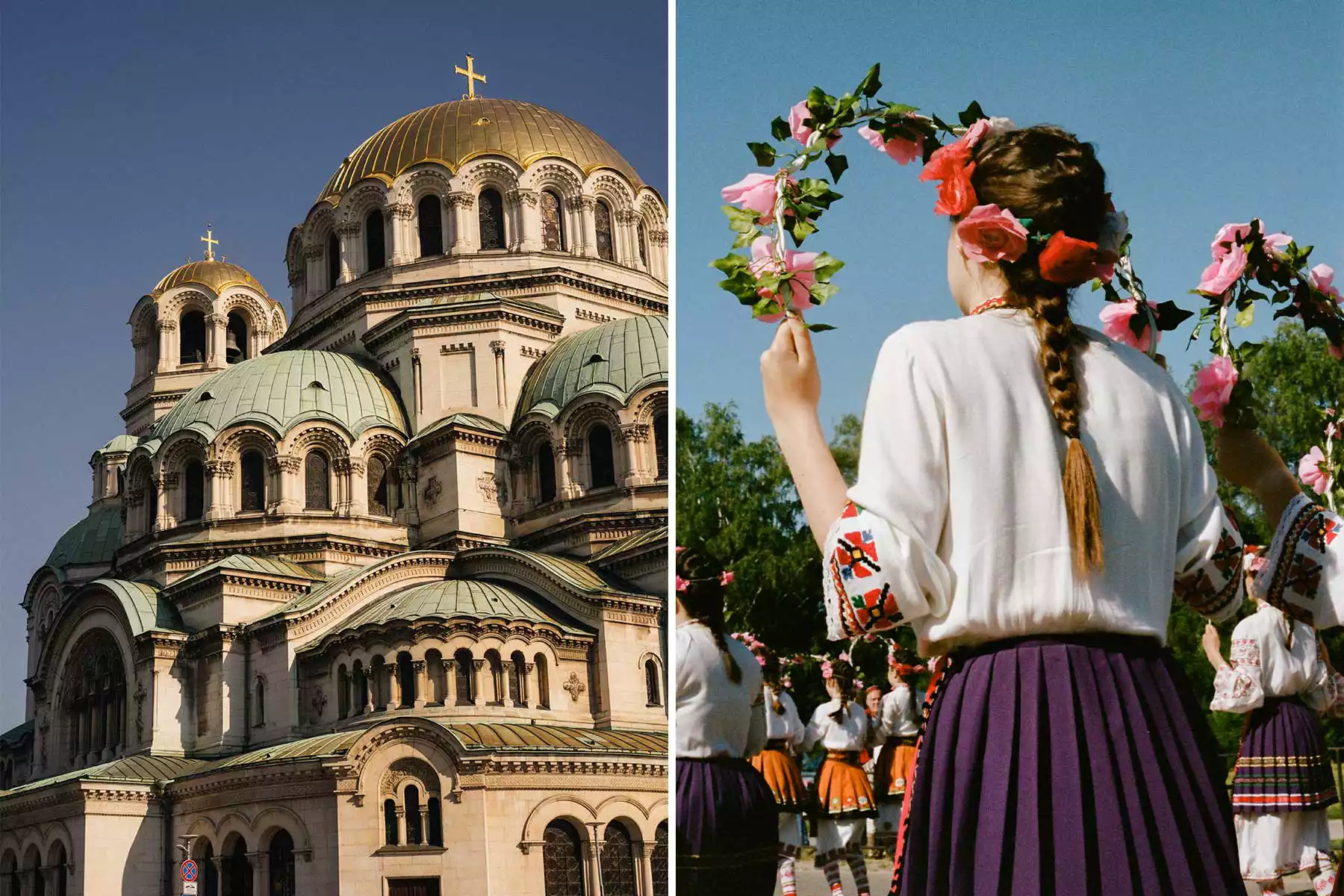Summary
Discovering Bulgaria: A Hidden European Gem
Bulgaria is often overlooked as a travel destination, yet its historic cities and stunning landscapes offer a rich and fascinating experience in Europe.
Arriving late at night at Zornitza Family Estate in southwestern Bulgaria, near the Greek border, we found the country roads unlit, illuminated only by the moon and stars. Exhausted from the eye-straining drive, we quickly fell asleep after entering our room.
“I think arriving here at night is honestly a pleasant surprise in the morning,” shared Yavor Kirov, the estate’s general manager, the following day.
In May’s soft morning light, Zornitza stands amidst rolling hills adorned with over 100 acres of grapevines and organic orchards filled with sour cherries and apricots. Roses bloom everywhere, from tiny pink buds climbing stone walls to large tiger-streaked petals swaying in the breeze, creating a vibrant and serene environment.
Zornitza Family Estate: Nature’s Bounty
:max_bytes(150000):strip_icc():format(webp)/gela-coutryside-dog-BULGARIA0722-d76400e523cb4b8d961b5b1305956057.jpg)
Kirov emphasized the concept behind Zornitza: “Creating a space where guests can connect harmoniously with nature is our goal.”
Bulgaria, often overshadowed by its southern neighbors and tied to its Communist past, is gaining recognition as a travel destination, thanks to a growing interest in Eastern Europe. My fascination with the country began with Kapka Kassabova’s remarkable book, Border: A Journey to the Edge of Europe, detailing her journey back to Bulgaria after the collapse of the Soviet Union.
Throughout our time at Zornitza, we reveled in the breathtaking surroundings, from the rolling hills to the abundance of flora.
Exploring Sofia: A Blend of History and Modernity
Kirov guided us through the nearby Pirin Mountains, a range steeped in legend and known for its powerful energy derived from mineral springs, attracting wellness seekers. We visited the remarkable Melnik Pyramids, exotic natural formations resembling rust-colored sandcastles, and the ancient Rozhan Monastery with its exquisite frescoes.
:max_bytes(150000):strip_icc():format(webp)/zornitza-family-estate-pool-BULGARIA0722-5d3ac372a1344efea7276aa866f1c746.jpg)
After a hearty meal at Rozhenski Han, where we savored traditional Bulgarian cuisine, we set off toward Sofia, taking a scenic route through stunning mountains. The detour to Rila Monastery, a UNESCO World Heritage site founded in the 10th century, was breathtaking, showcasing vivid frescoes and stunning architecture.
Exploring Sofia, we discovered its rich cultural tapestry, having been influenced by Thracians, Greeks, Romans, and other civilizations. The combination of historical sites and modern flavors is captivating and offers intriguing contrasts.
Plovdiv and the Rose Valley: A Flourishing Cultural Scene
Regarded as Bulgaria’s most beautiful city, Plovdiv boasts a rich history and vibrant culture. We ventured to this picturesque city, recognized as one of the oldest continuously inhabited settlements in Europe.
:max_bytes(150000):strip_icc():format(webp)/villa-gela-plovdiv-street-BULGARIA0722-e64f48f14d1843489982a91452392c32.jpg)
With rich historical ties dating back to its founding by Thracians, Plovdiv bursts with stories. As we explored the cobbled streets, vibrant pastels adorned buildings, and the famous Roman amphitheater emerged, showcasing performances that captivate both tourists and locals alike.
Rhodope Mountains: Mystical Landscapes and Local Cuisine
Journeying into the Rhodope Mountains, we indulged in authentic local cuisine at Villa Gella, where spectacular views and homemade dishes showcased the region’s culinary heritage. Our host, Peyto Nikolov, introduced us to the ancient history of the area, emphasizing the spiritual connection many locals hold with their land.
:max_bytes(150000):strip_icc():format(webp)/melnik-pyramids-BULGARIA0722-31ff98de348d432d86b2add7b42d6bff.jpg)
As we savored local recipes, the rich flavors complemented the breathtaking vistas. Our visits to local wineries and culinary hotspots highlighted the exceptional gastronomical experiences available in Bulgaria.
While other countries may be gaining attention, Bulgaria, with its mix of nature, culture, and history, is poised to become the next big travel destination in Europe.




